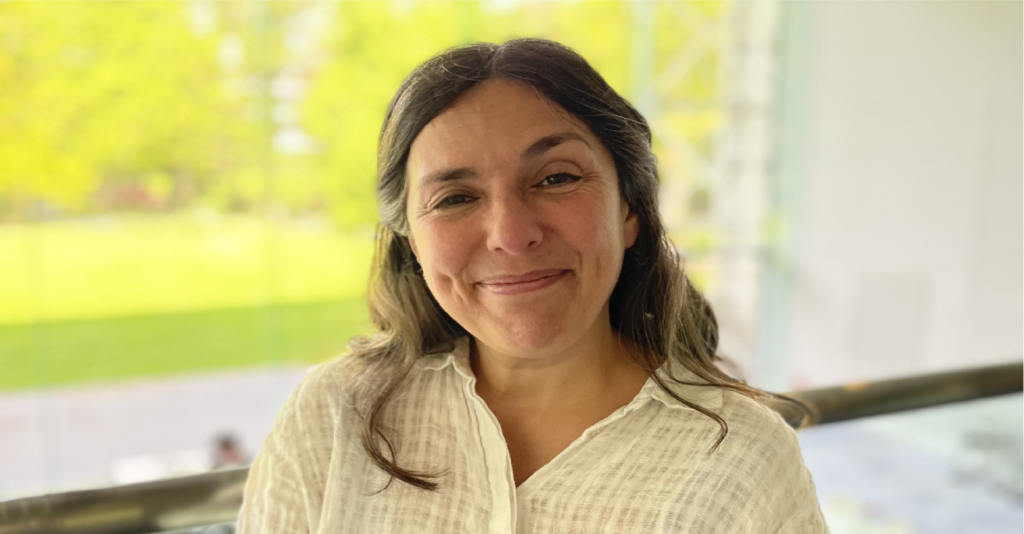
Meet your new Non-Executive Director: Katharine Quarmby
We sat down with Katharine Quarmby, one of two new Non-Executive Directors elected by members at our recent AGM, to learn more about her career, why she wanted to join the Board and what she sees as the biggest challenges going forward.
Can you tell us about your background?
I am a writer, editor and investigative journalist, and I have worked across broadcast, online and print media. At the moment, I’m particularly involved in journalism around climate change and communities that have been pushed to the edge for various reasons. I enjoy writing books for children and investigative non-fiction, and my first novel, based on a true story from my Norfolk hometown, about a local girl who was transported to Australia in the 1820s, was published in 2023. I’m now writing a crime series based around some of the stories I’ve covered as a journalist.
I worked in both the independent sector and for the BBC for around a decade as a researcher, then producer, mainly in news and current affairs. I found producing hard to juggle with having children, but more recently have returned to the sector to get involved in documentaries and dip my toe back into filmmaking.
As someone who has worked in various literary roles, from novelist to journalist to editor, what inspired you to pursue a literary career?
I was looking over old diaries recently and from being a child onwards it’s clear that I always wanted to write and be a journalist. It’s been a bit of a challenge, but I’m glad I have spent my whole life working with words, pictures and sounds to tell stories about the world we live in.
On a more personal level I was adopted from Iranian/English parents into a family with roots in Yorkshire, the former Yugoslavia, France and Spain, and think that questions of identity and the roads not taken, as described by the poet Robert Frost, can definitely fire up the imagination, as has been the case with me.
What interested you about serving on the Board of ALCS?
I have got involved with expert committees or boards where I have an understanding of the challenges that need to be faced and a commitment to the work to be done. This is also true of joining the ALCS Board. Having been a freelancer for many years, I really want to play my part in getting pounds into pockets, at a time when life as any sort of creative can feel very precarious.
ALCS not only champions the rights of writers to earn a decent living but also collects income that we couldn’t otherwise obtain. I have had a precarious living at times, particularly when I was a lone parent and my children were young. I’m excited to join the Board and pitch in, whether that is by boosting the work ALCS is doing for freelancers and creatives, working together to meet the challenges of generative AI or lobbying those in power to better support the creative industries.
You have a wealth of experience serving on Boards, can you tell us about those experiences and what you have learned?
I have served on a number of expert committees and boards ranging from criminal justice, to a committee for an international consulting firm that exposes corporate wrongdoing, a Director at the Society of Authors and have also been accountable to a board in a number of media organisations as an editor. I’m aware that a good board can help to steer strategy, support good governance and be a constructive friend to the CEO and other staff. There are huge challenges for the sector, from AI, from precarious incomes, and to fairer contracts. My experience from other Boards is that members are keen for organisations to be focused on their core mission, and I hope I can support ALCS to do that.
In addition, as a union member in both the Writers’ Guild of Great Britain (WGGB) and the National Union of Journalists, I want to help make the case for writers of all kinds to be represented and paid fairly and support the fantastic collaborative model that ALCS has pioneered with its campaigning.
Your role on the Board will focus particularly on the audiovisual sector. What do you think is the most pressing issue facing audiovisual writers right now?
Writers tell the stories in which societies either see themselves reflected or can find insight into other worlds and people, and our basic human task helps ourselves and others to make sense of the world in which we live. But we writers are also facing significant challenges.
The audiovisual sector is huge, covering everything from video game creation, to audio, theatre, film and TV. But as the WGGB says, there are existential threats to the sector, with theatres closing, new films and plays (including audio) not being developed or commissioned and writers really suffering from lack of work. There are real concerns that AI will deepen existing problems in the industry, reducing pay and opportunities yet further, as well as increasing threats to copyright. AI may also offer benefits, but ALCS and other writers’ organisations will have to remain extremely vigilant to ensure writing in the AI era can be a sustainable way of making a living.
What are you currently reading?
My brother often recommends books to me and so I’m reading Herman Pontzer’s book, Burn: the Misunderstood Science of Metabolism, which is fascinating. I’m also dipping in and out of Persian poetry, as I’ve been trying to learn Farsi for a while and poetry is a beautiful way of adding to my vocabulary. I’m also listening again to Jane Austen’s Mansfield Park as an audiobook and wondering how far Fanny Price’s questions about the evils of slavery mirrored the author’s own concerns.
You can learn more about Katharine and her work here.
